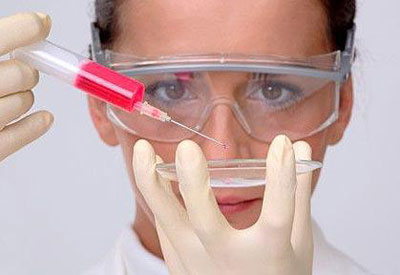Discovered 'culprit' causes colon cancer
Scientists at Johns Hopkins University in the UK have found the bacteria that are thought to cause colon cancer, one of the most prevalent cancers in the UK.
After conducting research on mice that carried colon cancer-causing genes, the researchers found that H. pylori , a culprit in gastric ulcers, was also the cause. colon cancer.
Currently, stomach ulcers can be cured with antibiotics. However, scientists still do not know whether bacteria that cause colon cancer can be cured with current antibiotics.

Scientists also said they have found this way of causing cancer. Accordingly, too many Bacteroides fragilis (ETBF) will promote the process of intestinal immune cells to produce chemicals that stimulate inflammation. These infections are an ideal environment for H. hepaticus to develop colon cancer.
' If what we obtained when experimenting on mice is true for the human body, chronic inflammation destroys substances in the colon cells and facilitates the initiation of H. pylori bacteria. proliferate rapidly to grow into tumors. 'Dr Drew Pardoll, an immunologist at Johns Hopkins University, said.
Currently in the UK, more than 37,000 people are diagnosed with colon cancer each year. And with the discovery of bacteria and colon cancer mechanisms, scientists hope to find a vaccine or drug soon to fight colon cancer, one of the many cancer types with billions. The highest infection in the UK.
- Extracts from abalone mushroom treat colon cancer
- Nuts can help control colon cancer
- The key to preventing colon cancer attacks the liver
- Mistletoe extract helps treat colon cancer
- Eating mangoes can fight cancer
- Vegetables reduce the risk of colon cancer
- For the first time, a case of terminal cancer is treated
- Soybeans prevent colon cancer
- Vitamin D helps prevent colon cancer
- Two types of proteins help predict colon cancer
- Colonoscopy reduces the risk of cancer by 40%
- How to eat helps reduce the risk of colon cancer
 Green tea cleans teeth better than mouthwash?
Green tea cleans teeth better than mouthwash? Death kiss: This is why you should not let anyone kiss your baby's lips
Death kiss: This is why you should not let anyone kiss your baby's lips What is salmonellosis?
What is salmonellosis? Caution should be exercised when using aloe vera through eating and drinking
Caution should be exercised when using aloe vera through eating and drinking